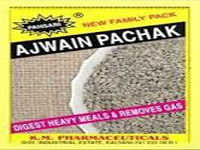Best Ways to Control Mosquitoes in Yard
If you’re surrounded by bothersome mosquitoes, spending time outside admiring your ideal landscape might rapidly turn into a nightmare. In this blog we will talk about the best way to control mosquitoes in yard.
DIY techniques are indeed a good way to start when it comes to getting rid of mosquitoes in yard, inside your house, or your place of business. However, choosing Mosquito control service in Kolkata can be a wise choice in terms of getting rid of mosquitoes for good.
DR Pest Control’s mosquito control services can help you get rid of mosquitoes and keep your surrounds clean. Our mosquito treatment is an integrated approach to get rid of mosquito breeding grounds and conduct a thorough assessment of the site and its surrounds to spot the affected areas.
What do mosquitoes look like?
Although you may be familiar with their bites, not everyone can identify the actual insect. Mosquitoes are tinier insects, measuring between a quarter and a half of an inch. Though certain species come in a variety of colors, the ones you’re most likely to see are grey or brown.
The easiest way to recognize them is by their limbs. They feature a pair of unusually large legs and two lengthy, scale-covered wings. A proboscis, which is an expanded mouthpart, is also visible up close. It is similar to a mosquito’s straw. They can be distinguished from other insects like crane flies by this feature.
What attracts mosquitoes to your landscape?
Mosquitoes prefer damp, gloomy environments. As they can breed there, they do best in locations with lots of shade and moisture.
Common mosquito habitats:
- Hollow trees
- Tall grass
- Under leaves
- Anywhere with standing water
The mosquito life cycle
Efficient mosquito control disrupts the insect’s life cycle. Although killing adult mosquitoes is a good place to start, the best way to assure that they won’t return is to stop them from reproducing.
Throughout the course of her lifetime, each female can produce more than 700 eggs (which is just a few months). Once they have mated with a male mosquito, they can lay up to five eggs as a result of that one interaction. A mosquito may lay as many as 100 eggs in an area little bigger than a bottle cap, so they don’t even require a mansion.
Egg, larva, pupa, and adult are the four stages of a mosquito’s life cycle. The first three processes require water, so it’s important to keep your landscape dry throughout these times. Mosquito larvae and pupae live on the surface of the water, and they require water for egg production.
Adult mosquitoes can now finally emerge from the water. Male mosquitoes only have a short lifespan of around a week and primarily eat plant nectar. Female mosquitoes, who bite you, can live for up to six months and require blood meals to feed their eggs. Some adult females hibernate as soon as it gets cold. Mosquito eggs frequently endure the winter.
5 ways to control mosquitoes in yard
1. Free from debris
Mosquitoes won’t want to leave as long as there are areas for them to play hide and seek. Debris removal is an excellent first step that will guarantee the effectiveness of any chemical treatments you use subsequently.
What does cleaning debris actually entail? Debris consists of:
- Lawn furniture
- Toys
- Weeds
- Leaves
- Compost piles
- Fallen branches
- Overgrown vegetation
- Tall grass
Cleaning up will have a significant impact on how effective subsequent treatments are. For instance, if you decide to use a broad-spectrum insecticide, nothing will prevent new adult mosquitoes from moving back in.
2. Dethatch
Dethatching is a method of mosquito control along the same lines. Dethatching eliminates a possible humid home for mosquitoes, much like cleaning away rubbish. Dethatching enhances the drainage of your soil. Both mosquitoes and fungus growth are prevented by doing this.
How do you know you need to dethatch?
It’s time to dethatch if the thatch layer is more than half an inch thick. Cut out a tiny triangle of turf that is 6 inches deep to measure the amount of thatch on your lawn. Squeezing the spongy layer above the soil will tell you if it is less than half an inch thick.
Your risk for heavy thatch is increased by certain factors. Thatch formation is more prevalent in soils that are acidic and compacted. Moreover, ineffective fertilization methods might thicken thatch. More thatch is produced by Kentucky bluegrass and creeping bentgrass than by other types of grass.
What is thatch?
In between the growing blades of grass and the soil below, thatch is a densely braided layer of living and dead stems, roots, and leaves. Thatch is very normal and helps to shield your lawn from excessive foot activity.
How to dethatch:
Use a rake or a dethatcher; those are your two alternatives. Similar to a rake, a dethatcher employs metal tines or blades to comb through the grass with minimal work on your part.
- Wait until it’s safe to mow your lawn.
- Cut it down to half its usual height.
- To remove the thatch, use a rake or a dethatcher.
3. Clear standing water
The last thing you want to do is add dealing with pooling water that continually keeps returning to your tasks. The locations or methods through which water is gathering on your property may not even be known to you.
Do not omit this phase. Mosquitoes spend 75% of their life cycle in water, therefore having a lot of it in your landscape is one of the main reasons they continue to spawn there. We’ll outline where to look for standing water and offer advice on how to handle it.
Where to check for standing water:
- Wheelbarrows
- Flower pots (consider moving inside)
- Tires
- Pet bowls (change daily)
- Birdbaths (change several times a week)
- Buckets
- Tarps
- Grill covers
- Trash can lids
- Depressions in lawn
- Gutters
4. Add mosquito-repelling plants to your landscape
Enhance your outside space while keeping mosquitoes at bay? Sign us up. There are numerous plants with characteristics that act as insect repellents naturally. Some plants have overpowering scents, while others include ingredients that aggravate insects.
Where should you plant them?
These plants work best in “hot spots,” or locations where mosquitoes are most likely to gather. It’s a good idea to use shady spots like the front porch and back patio or damp regions like those near water features or on low sections of land.
Mosquito-repelling plants:
- Bee balm
- Citronella
- Lavender
- Catnip
- Marigolds
- American beautyberry
- Peppermint
- Eucalyptus
Many of these plants also serve as a natural flea and tick deterrents.
5. Apply an insecticide
Applying an insecticide to your yard will kill adult mosquitoes, eggs, and larvae. Often, this is a last resort. Chemicals included in insecticides have the potential to cause skin irritation, harm benevolent insects like bees and butterflies, and damage the environment. Yet, they work well to keep mosquitoes under control.
You’ll find pyrethrins or their synthetic equivalent, pyrethroids, in the majority of insecticides. To completely remove the mosquito population, they’ll need to apply a few different treatments over several weeks. Always abide by the instructions for your particular product.
Contact DR Pest Control for quality mosquito control service in Kolkata
More than 1 million people die each year from mosquito-related diseases, making them the most dangerous creature on the planet. The most severe diseases spread by mosquitoes are Malaria, Dengue, Chikungunya, Yellow fever, etc.
Any bacteria or viruses that are present in the person’s body are sucked out by the mosquito when it bites them. The next person the mosquito bites can contract those bacteria and diseases.
So, using the assistance of knowledgeable mosquito control service providers is necessary to get rid of mosquitoes from your property.
For both residential and commercial purposes, DR Pest Control provides the best mosquito control services in Kolkata at affordable costs. Our goal is to reduce mosquito damage and eliminate them.
We provide a safe, all-natural mosquito treatment for homes that guarantees the greatest results and has no adverse effects on people’s health or the environment. To provide mosquito control services, we use the newest and most cutting-edge methods.

















